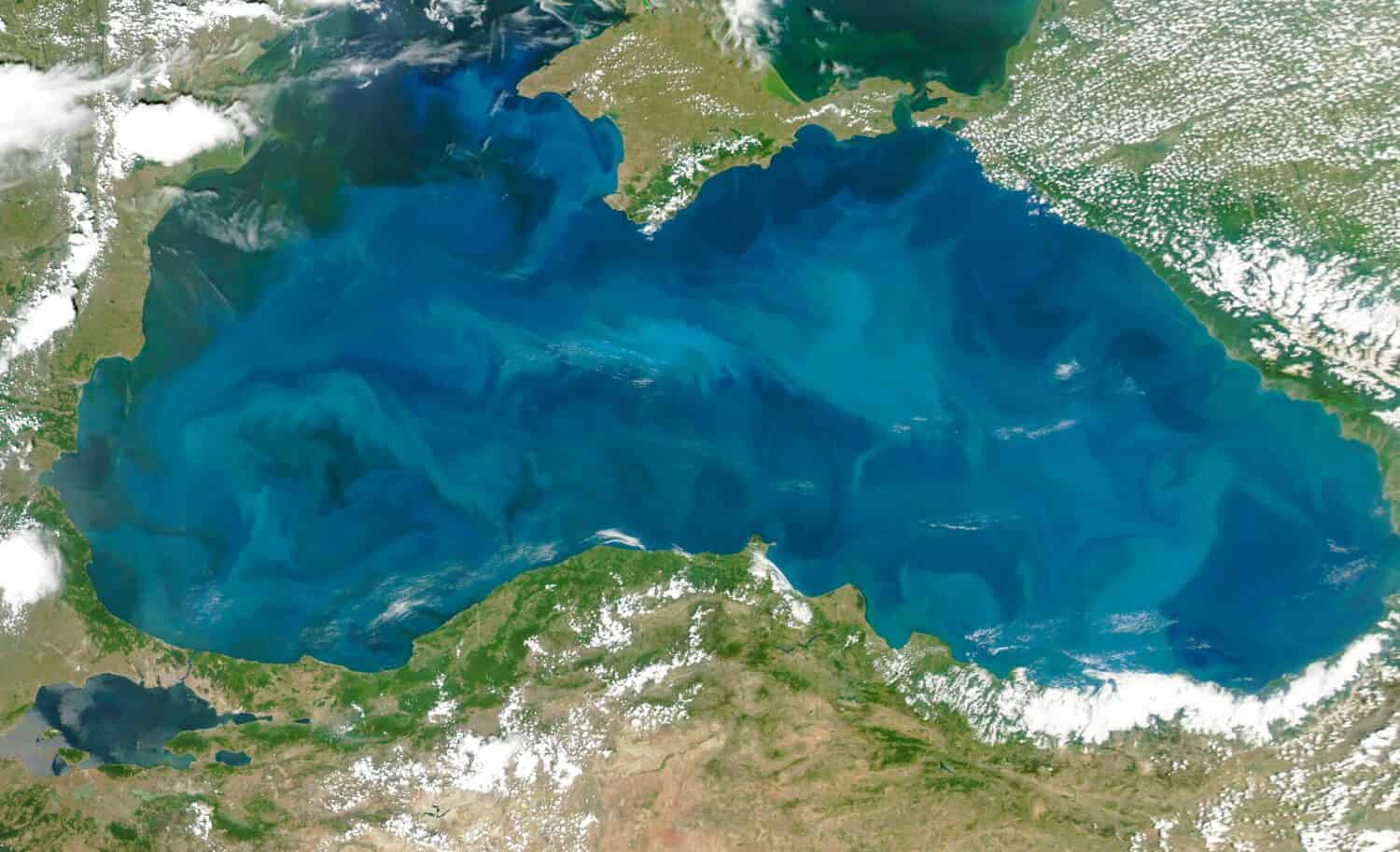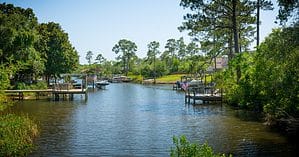There are four seas in the world that share their names with colors. They are the Red Sea, the Yellow Sea, the White Sea, and the Black Sea. Unlike its counterparts, Europe’s Black Sea may not get its name from its physical appearance. The Red Sea has reddish cyanobacteria, the Yellow Sea has yellowish silt, and ice covers the White Sea. The Black Sea, though, has a more complicated — and interesting — origin story.
The Origins of the Black Sea
From ancient Greeks and Turks to modern scientists and sailors, there are a number of hypotheses surrounding the Black Sea’s origins. From the beginning, the Black Sea’s rough, stormy waters defined it. A swirling tempest that filled travelers with dread, the sea also had a reputation for turning as black as its eventual namesake.

The Black Sea’s origins begin with the ancient Greeks.
©Nataliya Nazarova/Shutterstock.com
Greek Myth and the Inhospitable Sea
To find the origins of the somewhat mysteriously named Black Sea, one only has to look back in time to the ancient Greeks. Located at the borders of the ancient world, the Black Sea developed a mythos all its own. Through that, it garnered the name Pontus Axeinus in Greek, or “The Inhospitable Sea.” Named for not only its location but also its reputation as being notoriously difficult to navigate, the area was remote, unfamiliar, and, to many sailors, downright dangerous.
As the Greeks began to explore and expand their travels, though, the area in and around the “Inhospitable Sea” became more familiar to both sailors and settlers. As a result, Greek colonists began to settle around the formerly hostile sea’s borders. Eventually, the Greeks christened the Inhospitable Sea Pontus Euxinus, or “The Hospitable Sea.”
The Black Sea Legends and Lore
Steeped in history, the Black Sea also has its place among the pantheon of Greek myths. According to legend, Jason and the Argonauts sailed across the Black Sea’s tumultuous waters in search of the famed Golden Fleece. At the time, the sea was located in Colchis, at the Black Sea’s eastern shore (now present-day Georgia).
But Greek myths and legends are just the beginning of the Black Sea’s origin story. Later, in the 15th century, the Turks gained control of its shoreline. Like the Greeks, at first, the Turks found the sudden storms and dangerous conditions of the sea to be inhospitable. The storm-tossed waters looked impenetrable and appeared dark (or black). Because of this, the Turks decided on a more literal and less figurative name: Karadenız, or, as we now know it, the “Black Sea.”
The Science of the Black Sea
Despite origins deriving from the ancient world, the Black Sea also has a modern origin based on biology and science rather than myth. Consisting of deep waters — over 150 meters at its deepest — the inland sea is full of interesting biological contrasts. Most notably, because of oxygen deprivation, the Black Sea is unable to support life below its upper water levels. This has led to a saturation of hydrogen sulfide, contributing to the sea’s virtually inhospitable nature. Thus, below its watery depths, the sea does, literally, remain dead. The only notable exception is bacteria that have adapted to the harsh, oxygen-free and biologically barren environment.

Bacteria have adapted to survive in the oxygen-free environment beneath the upper water levels of the Black Sea.
©GizemG/Shutterstock.com
The Black Sea’s Origin: Ancient Legend or Modern-Day Science?
Like most origin stories, the Black Sea’s namesake exists at the confluence of ancient legend, modern science, and speculative hypotheses. The earliest traces of the Black Sea’s namesake can be traced to the Greeks and, eventually, the Turks. However, many throughout history have speculated that the Black Sea is sometimes synonymous with its appearance. Over time, sunken ships, debris, and dead plant and animal matter have reacted with the Black Sea’s high hydrogen sulfide content. This has resulted in the Black Sea’s waters appearing dark at best and gloomy and impenetrable at worst. But, despite the many hypotheses surrounding the Black Sea’s namesake, the once-named Inhospitable Sea remains as historically, geographically, economically, and biologically significant as ever.
The photo featured at the top of this post is © Elena11/Shutterstock.com
Thank you for reading! Have some feedback for us? Contact the AZ Animals editorial team.







